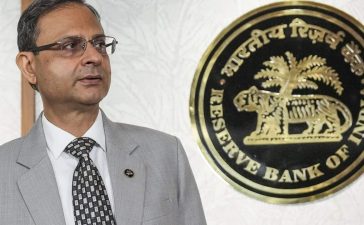
An illustrative image of Ethereum / Reuters-Yonhap
By Lee Yeon-woo

Laura Shin speaks to The Korea Times at a pub in Seoul before her book event, Aug. 19. Courtesy of DeSpread
When Laura Shin began her journalism career at Newsweek in the late 1990s, it was considered one of the most prestigious places to work. Back then, news consumption was not yet online, but the magazine’s influence grew notably after online media broke the Monica Lewinsky story. Despite this prominence, Newsweek was sold for just a dollar in 2010.
“I just saw how much the internet disrupted (the way) everything was done. And I feel like it’s going to be the same for blockchain technology,” Shin told The Korea Times during her recent visit to Korea.
Her first exposure to cryptocurrency came while she was freelancing for Forbes. As she researched the digital currency industry for the Forbes Fintech 50 list, she recognized that it represented a transformative system. She observed that some companies were merely applying a digital veneer to outdated financial concepts.
She later became a senior editor at Forbes and continued to report on the industry. During this period, numerous novel developments emerged, including the initial coin offering (ICO) craze of 2017 and 2018. Shin discovered that much of the market’s buzz, confusion, and excitement stemmed not from Bitcoin, but from a single crypto project — Ethereum.
She felt a strong urge to shed light on the history of Ethereum. In 2022, she completed her story, drawing on interviews with around 200 stakeholders from the Ethereum community over three years.
Her book, “The Cryptopians: Idealism, Greed, Lies, and the Making of the First Big Cryptocurrency Craze,” offers a vivid account of Ethereum’s origin, conflicts and evolution.
It also sheds light on the personality and leadership of its founder, Vitalik Buterin, known for his difficulty in refusing others and his preference for peace. These characteristics also made him susceptible to manipulation by Ming Chan, a former executive director of the Ethereum Foundation, who sought personal gains.
During her research, she and her sources uncovered evidence identifying those behind the 2016 hack of the Decentralized Autonomous Organization (DAO) on Ethereum. In that incident, the hacker exploited a vulnerability to siphon off 31 percent of the Ethereum coins held by the DAO, amounting to 5 percent of the total supply at that time.
“It was important for me to show, as the title says, the idealism and the greed and the lies — all good and bad,” Shin said. “Surprisingly, other people (who had worked or were working for Ethereum at the time) also felt the history needed to be recorded.”
The book was published in Korea in June and Shin visited the country in mid-August to promote it.
“My parents emigrated from Korea, and I’m very proud of my ancestry,” Shin said. “It’s very nice to have the book come out in Korean and to have people come (wanting) to see me and get their book signed.”
Shin is also famous here for her interview with Do Kwon on her blockchain and cryptocurrency podcast Unchained in 2022 when Kwon was on the run before his arrest at Montenegro airport.
Kwon was very different from Vitalik, who is so humble and community-oriented, according to Shin. “Before the Terra-Luna collapse, Kwon was one of the ones who frequently tweeted ‘have fun staying poor’ (to people who don’t believe in crypto) … But when I interviewed him, he was quite a lot more humble,” Shin recalled.
“Everybody wanted to know answers to many questions, so I wanted to make sure that I asked the most important ones,” Shin said. “I wanted to address, is he a failed entrepreneur? Is he a fraud? Is he a criminal?”






